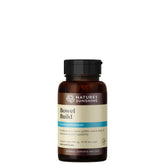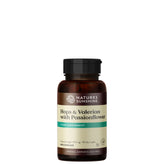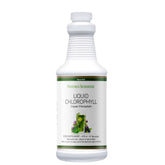Why Skin Issues Start in the Gut (and How You Can Heal from Within)
If you're dealing with acne, eczema, rosacea, or sensitive, dry skin — you’re not alone. But what if your skin was trying to send a message? One that starts deep in your gut?
In mainstream medicine, skin problems are often treated with creams, antibiotics, or steroid lotions. These can give short-term relief, but they don’t always get to the root of what’s really going on inside.
Let’s explore how your skin and gut are connected — and how taking care of your digestive health can lead to glowing, balanced skin.
✨ The Gut-Skin Connection: What Science Is Now Proving
New research shows that your gut and skin communicate constantly. This is known as the gut-skin axis. When your gut is happy and healthy, your skin reflects that harmony. But when things are off — such as from stress, poor diet, or gut inflammation — it can show up as acne, redness, or irritation. Problems in the gut microbiome (your internal ecosystem of good and bad bacteria) have been linked to:
- Acne
- Psoriasis
- Eczema
- Rosacea
🔍 What Are the Root Causes of Skin Issues?
To truly support your skin, it helps to understand the real causes behind chronic conditions. Here are the top 8:
-
Gut Dysfunction (Leaky Gut & Dysbiosis)
Toxins and undigested food escaping into the bloodstream cause inflammation, which can trigger eczema, acne, or psoriasis. -
Nutrient Deficiencies
Lack of zinc, vitamin A, omega-3s, or antioxidants weakens skin repair, hydration, and immunity. -
Hormonal Imbalance
Excess androgens or estrogen imbalances often show up on the skin, especially around the chin and jawline. -
Toxin Overload
When your liver and gut can't keep up, your skin becomes a backup detox organ. -
External Irritants (Chlorine, Pollution)
Chlorine and hard water disrupt the skin barrier, while air pollution causes oxidative stress. -
Allergens & Harsh Skincare
Synthetic fragrances, sulfates, and preservatives often trigger flare-ups or worsen sensitivity. -
Stress & Nervous System Imbalance
Chronic stress impacts your gut and hormones, raising cortisol, which inflames the skin. -
Emotional or Energetic Root Causes
Skin reflects emotional boundaries and unresolved trauma. Feeling "exposed," shameful, or disconnected can show up as chronic skin irritation.
👶 Can Skin Issues Be Inherited?
Yes — skin issues can run in families, and more importantly, imbalances in the gut and skin microbiome can be passed down from mother to child.
Conditions like eczema, psoriasis, acne, and rosacea often have genetic links. But science shows that your skin health is shaped not just by your genes, but by how those genes are expressed — something influenced by diet, stress, and emotional well-being.
The microbiome (the community of bacteria and microbes in your gut and on your skin) is also passed on:
- Vaginal birth and breastfeeding play key roles in shaping a baby’s microbiome.
- If the mother has gut issues or imbalances, they can be passed to the child.
- A weak or imbalanced microbiome increases risk of skin issues, allergies, and immune problems.
🧬 Even emotional and energetic patterns can be inherited. Traumas or stress experienced by your ancestors can affect your nervous system and stress response today — a concept known as epigenetic imprinting. By healing your gut, emotions, and lifestyle patterns, you don’t just help yourself — you create a healthier foundation for your children and future generations. Healing is generational work — and it starts within you.
🚿 Hidden Irritants: Chlorine, Chemicals & More
Even the water you bathe in can affect your skin more than you might think. Chlorine, used to disinfect tap water and swimming pools, can strip away the skin’s natural oils, disrupt the skin microbiome, and impair the protective barrier. This may lead to dryness, itching, and flare-ups of conditions like eczema or contact dermatitis — especially in children and those with sensitive skin.
But chlorine isn’t the only hidden irritant. Here are more everyday exposures that can quietly stress your skin:
-
Synthetic Fragrances
Found in lotions, shampoos, detergents, and air fresheners. These are one of the most common causes of skin sensitivity and irritation. -
Sulfates (like SLS)
These foaming agents in soaps and shampoos can strip natural oils and damage your skin’s barrier. -
Laundry Products
Detergents and fabric softeners leave residue on clothes that can irritate the skin — especially on sheets, underwear, and towels. -
Heavy Metals in Water
In addition to chlorine, tap water may contain metals like copper or lead that contribute to skin inflammation and detox overload. -
Synthetic Fabrics
Wearing tight, plastic-based clothing like polyester can trap heat and irritate the skin, especially when sweating. -
VOCs in Household Products
Scented candles, air sprays, and many cleaning products release volatile organic compounds that affect the skin and lungs. -
Mold Exposure
Hidden mold in homes can contribute to histamine issues, rashes, and chronic inflammation — even without obvious respiratory symptoms.
🛁 Protective Tip: Install a shower filter, switch to fragrance-free or natural cleaning products, wear breathable fabrics, and use mineral-rich, non-toxic skincare to support your skin from the outside while healing from within.
🧘♀️ Stress: The Silent Saboteur
Stress affects far more than your mood — it plays a key role in inflammation, hormone balance, and gut health, all of which directly impact your skin. Here are the top ways stress can show up on your skin:
-
Raises Inflammation & Oil Production
Cortisol increases inflammation and stimulates excess oil, which can lead to breakouts and flare-ups. -
Disrupts the Microbiome
Stress affects the balance of good bacteria in the gut and on the skin, weakening your natural defense system. -
Impairs Sleep & Healing
Poor sleep caused by stress reduces your skin’s ability to repair, leading to dullness and sensitivity.
🌀 Quick Tips:
- Practice deep belly breathing for 5–10 minutes a day to reset your nervous system and calm inflammation.
- Prioritise quality sleep with a calming bedtime routine, herbal teas like chamomile, or magnesium supplements.
- Use calming herbs such as lemon balm, passionflower, or ashwagandha to help manage stress naturally.
- Move your body gently — go for walks, stretch, or practice restorative yoga to release tension.
- Journal your thoughts or write down 3 things you're grateful for to help shift your emotional state.
- Take screen breaks and spend time outdoors in natural light to balance your circadian rhythm and lower cortisol.
🧴 Creams and Moisturisers: Help or Hindrance?
While creams and moisturisers can provide short-term relief by hydrating the surface of the skin, they often don’t address the deeper issue. Over-reliance on topical treatments without supporting the gut and internal systems may delay true healing.
Some moisturisers, especially those with synthetic fragrances, preservatives, and alcohols, can disrupt the skin barrier and worsen sensitivity over time. Many contain petrochemicals that create a superficial layer of smoothness without nourishing the skin cells underneath.
Natural, nourishing moisturisers like those containing jojoba, calendula, shea butter, or aloe vera can be beneficial — especially when paired with internal healing. These support the skin’s repair processes while keeping it protected from environmental stressors.
However, it’s important to pair topical care with internal work. True, long-lasting skin transformation comes from within — through nourishment, balance, and natural detoxification.
True healing starts from within — through nourishment, balance, and natural detoxification.
🥦 What to Eat for a Healthy Gut and Radiant Skin
Your gut microbiome thrives on real, colourful, whole foods — not processed or packaged “health” fads. Aim to eat the rainbow by including a wide variety of colourful vegetables and fruits. Each colour feeds different strains of beneficial bacteria and provides key antioxidants your skin needs to repair and glow. Focus on organic veg, clean proteins, and healthy fats like avocado, olive oil, and coconut.
Add in fermented foods like sauerkraut, kimchi, or kefir (if tolerated) to boost good bacteria, and prebiotic foods like garlic, leeks, and onions to help them thrive. For sensitive tummies, cooked meals like soups, stews, and bone broths are easier to digest and deeply nourishing.
Nature’s variety is your medicine — the more diversity in your plate, the more resilience in your gut and skin.
🌸 Start Healing Your Skin from the Inside Out
At Nature’s Supplements, we believe in getting to the root cause and supporting your body with nature’s wisdom.
Here’s where to begin:
- Cleanse with Gentle Herbs - The Healthy Starter Programme by Nature's Sunshine is designed to support your colon, liver, and lymph — key systems for clear skin.
- Rebuild Your Gut Lining - Use L-glutamine, probiotics, and soothing herbs like slippery elm to restore your gut’s integrity.
- Hydrate and Nourish - Eat clean, whole foods and drink filtered water. Add a pinch of sea salt or mineral drops for better absorption.
- Calm Your Nervous System - Sleep well, breathe deeply, and use calming herbs like lemon balm or magnesium to reduce inflammation from stress.
- Support Detox Naturally - Start your day with warm lemon water. Drink herbal teas like nettle or chamomile to gently support liver and skin health.
- Make Simple Lifestyle Shifts - Use a shower filter to reduce chlorine exposure, switch to fragrance-free laundry products, wear breathable, natural fabrics (like cotton or bamboo), dry brush a few times per week to help your lymph move toxins out.
Small, consistent steps can make a big difference. Support your inner terrain, and your skin will thank you.
🩺 Seeking Professional Support
If your skin issues are persistent, painful, or affecting your well-being, it’s important to seek support from qualified practitioners who understand how to treat the body as an integrated whole.
Look for:
- Naturopathic doctors or nutritional therapists who address gut health, hormones, and lifestyle.
- Functional medicine practitioners who use lab testing and root-cause healing.
- Holistic dermatologists who go beyond the surface to support internal balance.
- Kinesiologists who use muscle testing to identify imbalances, resolve energetic blockages, and test for allergies and intolerances.
- Homeopaths who use gentle, energetic remedies and test the body’s responses to identify tailored solutions.
- Herbalists or integrative health coaches who understand the connection between emotions, diet, and skin.
Working with someone who considers your full story — not just your symptoms — can offer powerful breakthroughs on your healing journey.
🌟 Take the First Step Toward Radiant Skin
Your body wants to heal — sometimes it just needs the right support.
📚 Scientific References
- Salem I, et al. (2018). The Gut Microbiome as a Major Regulator of the Gut-Skin Axis. Front Microbiol.https://doi.org/10.3389/fmicb.2018.01459
- Fasano A. (2012). Leaky gut and autoimmune diseases. Clin Rev Allergy Immunol. https://doi.org/10.1007/s12016-011-8291-x
- Bowe WP, Logan AC. (2011). Acne vulgaris, probiotics and the gut-brain-skin axis. Gut Pathog. https://doi.org/10.1186/1757-4749-3-1
- Medical News Today. (2023). Chlorine rash: Symptoms, causes, and treatments. https://www.medicalnewstoday.com/articles/323134
- Arck P, Paus R. (2006). From the brain-skin connection: The neuroendocrine-immune misalliance of stress and skin. Am J Clin Dermatol. https://doi.org/10.2165/00128071-200607060-00004
- Heng MC. (2019). Integrating the skin and gut in dermatology. Dermatol Ther. https://doi.org/10.1111/dth.12774








